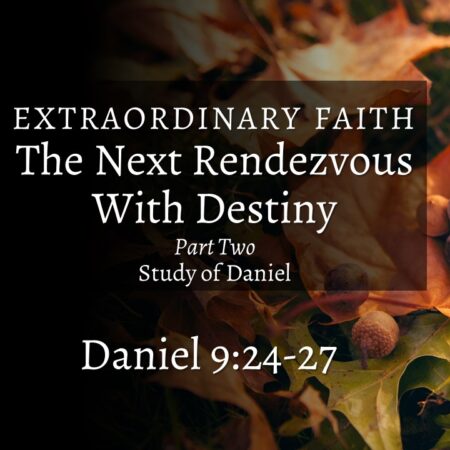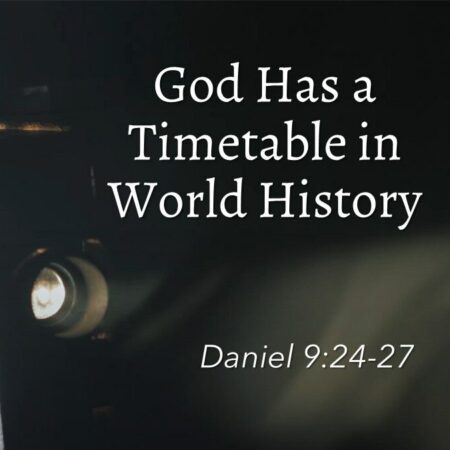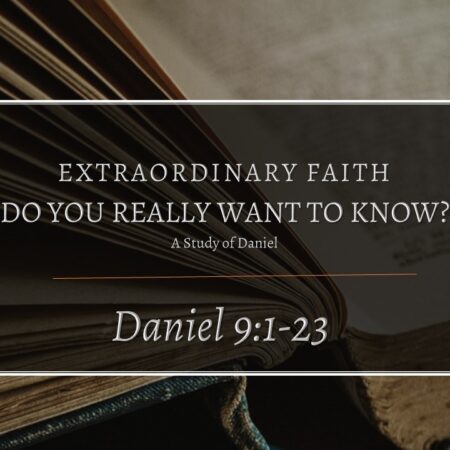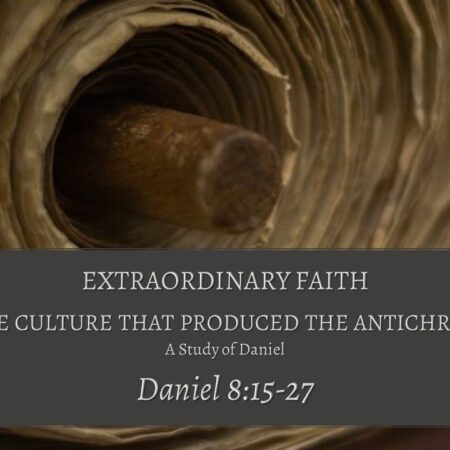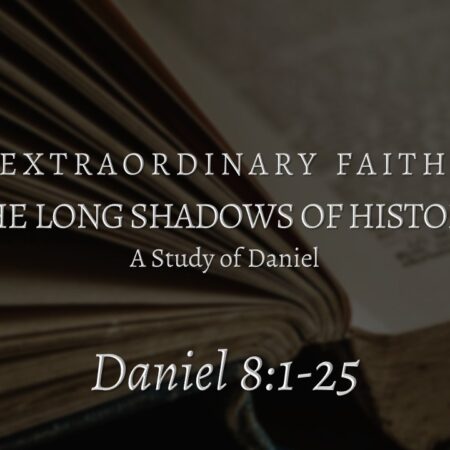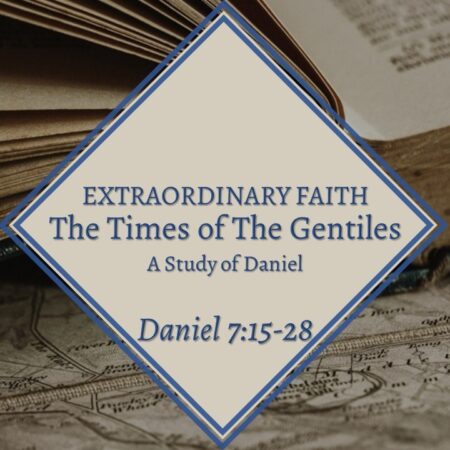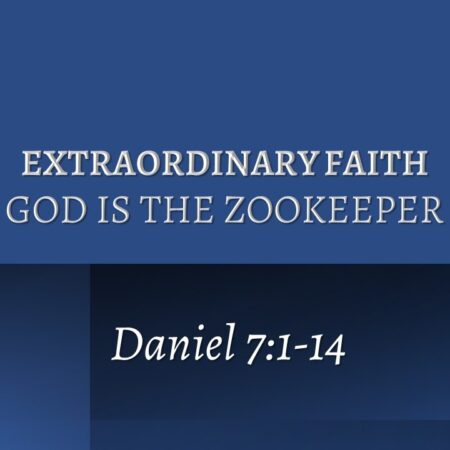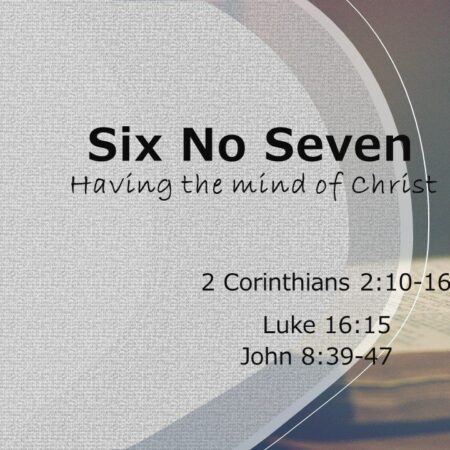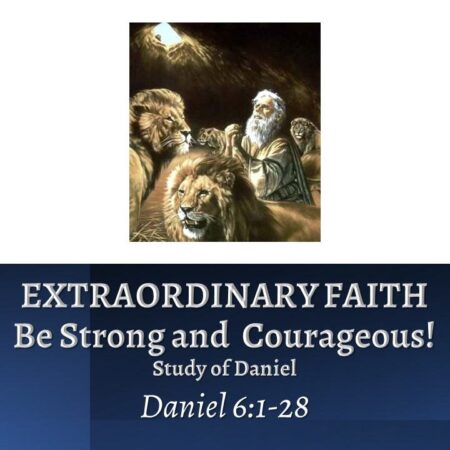Daniel 9:24-27 Ecclesiastes 3:9-18 Daniel 9:21-24 Ecclesiastes 3:16-18 John 16:31-33 Strauss and Howe in their book: THE FOURTH TURNING “History is seasonal, and winter is coming. Like nature’s winter, the…
Daniel 9:24-27 Matthew 24:3 Matthew 24:36-39 Daniel 9:24-26 Ezra 1:1-4 Ezra 3:10-11 Ezra 4:1-3 Ezra 4:11-13 Ezra 4:21 Daniel 9:25a Nehemiah 1:4-6 Nehemiah 2:1-5 Ron Rhodes in his commentary on…
Daniel 9:1-23 Daniel 9:1-2 Daniel 9:4-8 Leviticus 25:1-2; 8 Leviticus 26:14-38 Leviticus 26:40-45 Daniel 9:15-19 www.Christianheadlines.com titled: “U.S. is Facing a worldview Crisis, George Barna says: 94 Percent reject a…
Daniel 8:15-27 Matthew 24:1-31 Matthew 24:15-22 Revelation 9:1-11 2 Thessalonians 2:9-14 John Lennox makes the connection when he writes: “Since Antiochus IV plays a central role as a thought model…
Daniel 8:1-25 Daniel 8:1-2 Ezekiel 38:1-6 Daniel 8:3-14 Daniel 3:15 Daniel 8:5-7 Daniel 8:8-12 Daniel 8:10-12 John Lennox “Against the Flow” “A pattern beings to emerge in these first three…
Daniel 7:15-28 Revelation 13:1-8 2 Thessalonians 2:1-4 2 Thessalonians 2:9-10 On the eve of his forced exile, Solzhenitsyn published a final message to the Russian people, titled: LIVE NOT BE…
Daniel 7:13-28 Daniel 7:13-14 Genesis 1:26-28 Philippians 2:5-11 Psalm 2:1-9 Daniel 2:44-45 John 5:22-27 Matthew 26:63-64 Acts 7:49-58 John Lennox makes this observation regarding Daniel’s vision in chapter 7:13-14:…
Daniel 7:1-14 Revelation 21:1 Jeremiah 4:5-7 Ezekiel 17:1-4 Ezekiel 17:11-12 Daniel 4:29-32 Daniel 7:9-14 Sinclair Ferguson in his commentary on Daniel writes: “What we seem to be given in…
Proverbs 6:16-18
Daniel 6:1-28 Joshua 1:5-9 Mark 7:20-22 James 3:14-16 1 Kings 8:47-50 John Lennox in “Against the Flow” writes: “The first chapter of the first half of Daniel parallels the…

